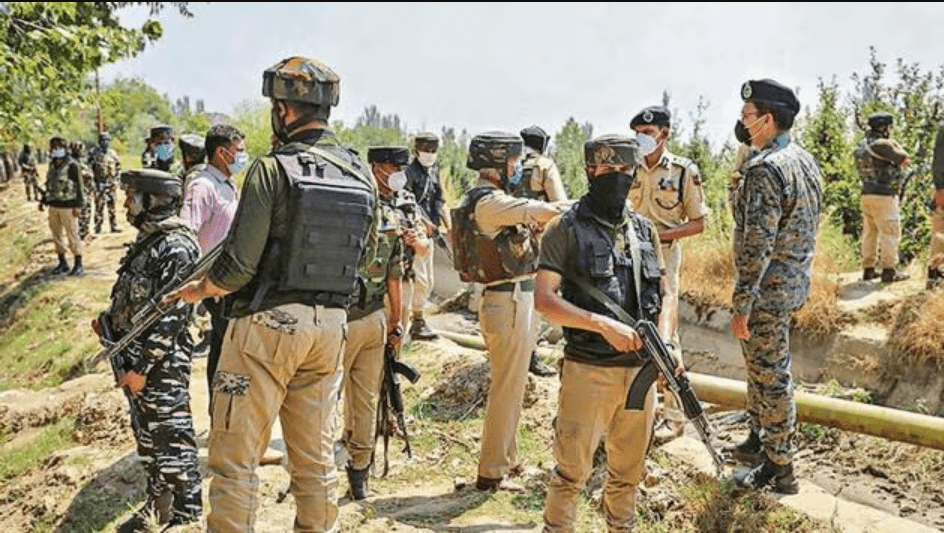As Pakistan plays with the fire of cross-border terrorism, Islamists target its own men in uniform

This week Pakistan’s Lakkhi Marwat region recorded an attack on its army personnel claiming the lives of seven soldiers after their vehicle was blown up in an IED blast.
In another incident, three Pakistan Frontier Corps members were injured in an IED attack in Kuchlak region.
These trends in Pakistan in recent times are indeed alarming and the country is witnessing a significant spike in terror activities, especially targeting of the all-powerful Pakistan Army.
If the current week is taken into consideration then there was another terror attack reported in Bajaur where suspected terrorists tried to storm into a police station which was however repulsed by the cops.
The attackers charged the police post in the Miagano area with multiple weapons including rocket launchers.
The frequency of these incidents is now alarming and Pakistan’s Shehbaz Sharif-led government is still far away from tackling the menace.
As per data released by the Pakistan-based Center for Research and Security Studies, during the first quarter of 2024, Pakistan witnessed 432 violence-linked fatalities and 370 injuries among civilians, security personnel, and outlaws, resulting from as many as 245 incidents of terror attacks and counter-terror operations.
This includes 281 fatalities among civilians and security forces personnel.
All these data reflect the helplessness of the Pakistani government in solving the terrorism cycle in the country.
The US government’s ‘Country Reports on Terrorism 2022’ said Pakistan’s geographic landscape and porous borders increase its vulnerability and risk to terrorist financing.
Pakistan’s leading Dawn News blames Afghan Taliban’s takeover of Kabul in 2021 and the collapse of the ill-advised ceasefire with the banned TTP as the causes behind exacerbating the situation. TTP is the abbreviation of Pakistani Taliban, which was formally called the Tehreek-e-Taliban-e-Pakistan.
“Despite repeated diplomatic engagements and cross-border actions, the Taliban have shown little inclination to curb the activities of their ideological brethren. And so, an emboldened TTP has been able to regroup and mount sophisticated attacks against targets inside Pakistan,” read the editorial titled ‘Unyielding onslaught’.
The editorial says Pakistan must develop a strategy that integrates both military and civilian efforts to fight back the escalating threat.
“Our security forces need to be adept at handling asymmetric warfare including detecting and defusing IEDs, urban combat, and intelligence gathering. Well-trained, well-equipped police forces must support the military to ensure a holistic approach to counterterrorism,” the Editorial read.
The editorial concluded that it is not the only responsibility of the country’s powerful military to fight against terrorism, rather a special role in this regard should also be played by civil institutions.
With India’s Jammu and Kashmir once again making it to the headlines over a series of terror attacks in the region this week, Pakistan’s nefarious involvement in exporting terror is also once again exposed with The Resistance Front claiming responsibility for the attack on pilgrims who were travelling in a bus in Reasi. The organisation is an offshoot of Pakistan based jihadist group Lashkar-e-Taiba.
At a time when Indian PM Narendra Modi took oath for the third term, the country was shocked when terrorists of the Pakistan-backed outfit targeted the bus which left nine pilgrims dead and 33 others injured, marking one of the worst attacks in the region in recent times which was trying to limp back to normalcy after years of living under the shadow of terrorism.
The Modi government removed Article 370 in 2019, months after winning the second term, giving a boost to the possible establishment of peace in the region. The scrapping of the Article which gave a special status to Jammu and Kashmir was considered as a game changer move with the potential of changing the fate of the region which suffered from Pakistan-backed terrorism for years.
Rather than disrupting peace in Jammu and Kashmir by exporting terrorism, the Pakistan government should focus on combating domestic terrorism rather.
ENDS






